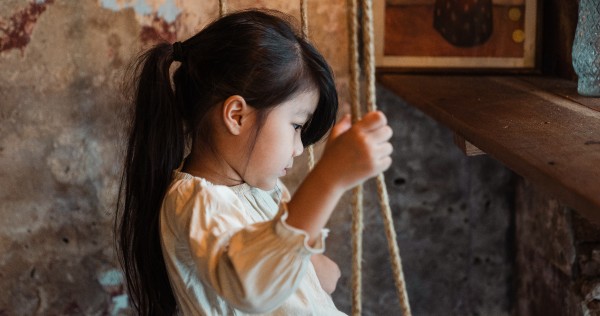Facing death is a difficult thing, even for most adults. So it can be just as difficult to help young children understand and cope with the loss of a loved one. So, in light of World Mental Health Month, we thought we’d take a look at this difficult topic.
Death is a common theme in cartoons and books aimed at young readers, so most young children are aware of death from a young age, even if they do not fully understand its implications.
As a parent, you cannot protect your child from the pain of losing a loved one (parent, pet, or even friend), but there are steps you can take to help your child feel better about themselves. safety and to manage their situation. feelings during this difficult time.
1. Understand that children grieve differently than adults
Grief is difficult for everyone, but children do not have the same emotional self-regulation skills as adults. Little children can go from crying one moment to being happy and normal the next. Sometimes children also express anger towards the person who has died, because they feel that the person was selfish and unfair in “leaving” them.
2. Break the news gently but honestly
If possible, the person who breaks the sad news should be the person closest to the child, someone they trust and feel comfortable with. The younger the child, the more literal their understanding, so avoid using words like “died, he’s gone, we lost him” and other similar euphemisms. Speak frankly to young children to avoid confusion or to frighten them further.
3. Keep it simple
Too much information can also overwhelm small children, so let them ask the questions and follow their lead as honestly as possible.
4. Encourage them to express their feelings
Being able to cope with loss in a healthy way is an invaluable skill to teach your young child, so encourage them to talk honestly about their feelings. Likewise, do not hide your sorrow either; children are more open about their own feelings when they see that you are honest about yours.
5. Reassure your child it’s okay to be upset
Sometimes young children are so upset by the loss of a loved one that they may temporarily return to bed wetting again or having trouble sleeping. Reassure your child that it takes time to stop feeling sad and give them time to heal in a healthy, emotionally positive way.
6. Commemorate the person together
As painful as it may be, remembering a loved one is part of grieving and healing, because sharing happy memories helps heal grief. Help your child commemorate their death by remembering their good qualities, putting up pictures of them, and remembering happy memories with them. Such positive steps will help your child understand that it is healthy to remember someone in a good way.
7. Maintain normal routines as much as possible
Young children like routine and a regular schedule gives them the security that life goes on. Stick to a normal routine to keep your child’s life as normal as possible. Having daily distractions will also help your child better cope with the loss of a loved one.
READ ALSO : Improve your mood: 10 science-proven happiness tips
This article was first published in Wonderwall.com.
